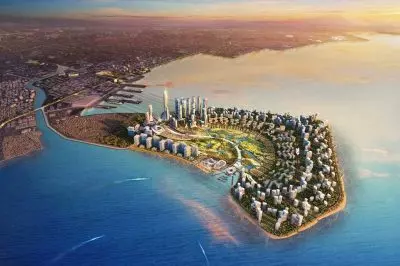 Filipino politician Rufus Rodriguez proposed the formation of a special regulatory body that is to be tasked exclusively with the oversight of local casinos. House Representative Rodriguez argues the move will enable the government-owned Philippine Amusement and Gaming Corporation (PAGCOR) to continue operating the 47 casinos in the country that are currently under its regulatory scope.
Filipino politician Rufus Rodriguez proposed the formation of a special regulatory body that is to be tasked exclusively with the oversight of local casinos. House Representative Rodriguez argues the move will enable the government-owned Philippine Amusement and Gaming Corporation (PAGCOR) to continue operating the 47 casinos in the country that are currently under its regulatory scope.
The proposal comes amid the ongoing discussions about whether or not to privatize the casino assets of the government-controlled corporation. The sale was proposed as a solution to the issue of the corporation acting as both a regulatory body and a gambling operator. House Representative Rodriguez is against the privatization because the state-owned casinos generate substantial annual revenue for the Philippine government.
The politician told local media that he firmly opposed privatizing the casinos and compared the move to selling the proverbial goose that lays golden eggs. He suggested it would be a better idea to create a dedicated gambling regulator called the Casino Gaming Regulatory Authority. The entity would oversee casino businesses throughout the country and this includes both PAGCOR-operated venues and privately run casino resorts.
This will allow the government-owned organization to continue acting as a casino gaming operator, bringing much-needed revenue to the state coffers. House Representative Rodriguez argues that PAGCOR’s dual role of regulator and gaming operator could drive away private investments in the sector. According to the politician, this is unfair to private businessmen who invest in the local gambling industry.
Privatization Is Logical according to PAGCOR’s New Chief
 The topic of selling the assets was discussed again earlier this week. Alejandro Tengco, who was recently appointed as PAGCOR’s new Chairman and Chief Executive Officer, raised the subject during a House appropriations committee hearing. The new CEO stated that selling the corporation’s casino assets was the most logical move for the country’s gambling regulator as it would enable it to concentrate on a single mandate.
The topic of selling the assets was discussed again earlier this week. Alejandro Tengco, who was recently appointed as PAGCOR’s new Chairman and Chief Executive Officer, raised the subject during a House appropriations committee hearing. The new CEO stated that selling the corporation’s casino assets was the most logical move for the country’s gambling regulator as it would enable it to concentrate on a single mandate.
Tengco said the idea was certainly appealing, but stressed that more time was required to explore further options. Should the corporation proceed with this plan, it would act as the sole regulator of both online and landbased casino gaming businesses in the country, the new CEO said.
The privatization discussions reopened after Benjamin Estoista Diokno, the Philippines’ current Secretary of Finance, prompted the corporation’s new leadership to finally clarify how it intends to resolve the issue with PAGCOR’s conflicting roles.
The organization first unveiled plans for the sale of its casinos in the summer of 2016 under an order issued by President Duterte whose term ended in June 2022. The initial plan behind the sale was to generate additional funds for the national budget. The government-controlled corporation announced it was to start selling its licenses in 2018.
Earlier this year, it became clear that PAGCOR had selected 17 of its casinos to be sold to interested private companies as part of the privatization’s first phase. These plans were subsequently shelved by now-former PAGCOR chief Andrea Domingo due to the solid revenue the casinos generate for the government.